Past, Present, Pride. The Pride Business Forum Annual Conference celebrated 15 years of change.
This year’s Pride Business Forum conference took place at the Hilton Prague, and it was more than just another event. It marked 15 years of working for LGBTQ+ equality at work — a journey that started small but has grown into something big and powerful.
A warm welcome back to Prague
The day started with a familiar voice. BBC journalist Evan Davis came back to the PBF stage after nine years. “It feels much bigger now,” he said. “More lights, more style, more energy.” Years ago, the idea of equality at work was still very new — even for LGBTQ+ people themselves. Tereza Kadlecová, Executive Director of Pride Business Forum, remembered those early days clearly.
“Nobody really knew what workplace equality should look like — not even queer people,” she said. “Now, we have over 100 companies that are truly working to build fair workplaces.” But progress doesn’t mean the work is done. Tereza reminded everyone that the world is changing — and not always for the better.
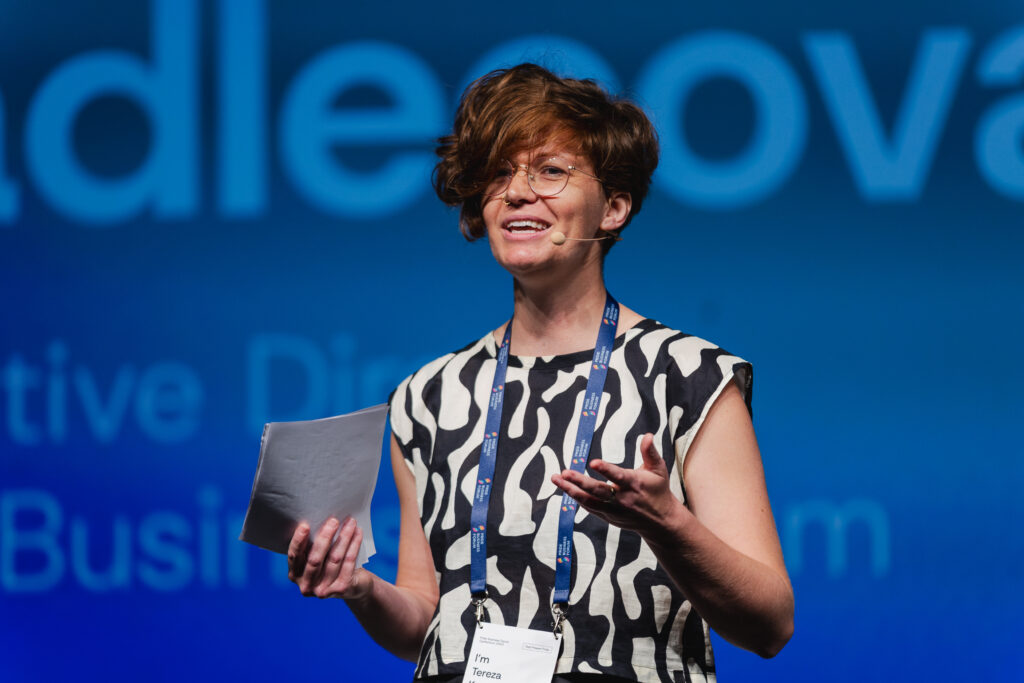
From a simple start to a strong network
In a panel discussion with Czeslaw Walek, founder of PBF, Monika Ladmanová from the European Commission, and Pavlína Kalousová from Asahi Europe, the audience got a glimpse into how it all began.
Pavlína Kalousová said she joined the project simply because Czeslaw needed help. At first, the work was slow and uncertain — but the results are now clear. “We trusted ourselves, each other, and the companies that supported us,” added Monika Ladmanová.
Mental health behind the numbers
One of the most powerful talks came from Dr. Michal Pitoňák, a researcher from Charles University and the National Institute of Mental Health. He shared new data on the mental health of LGBTQ+ people in Czechia — and the numbers were hard to hear.
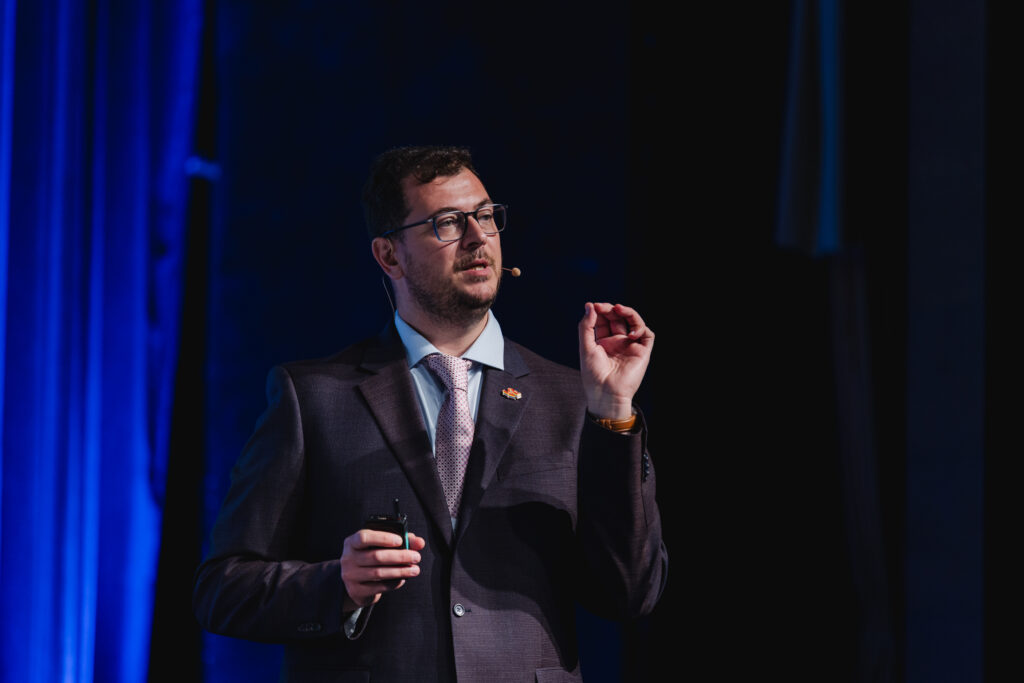
While about 6% of heterosexual people report suicidal thoughts, that number jumps to 25% among gay and lesbian people. For trans and non-binary people, the risks are even higher. But Dr. Pitoňák explained that the problem isn’t someone’s identity — it’s their environment. Many LGBTQ+ people feel less support from family and friends, and more discrimination.
“We live in a loneliness pandemic,” he said. “People are more connected through social media, but they are lonelier than ever.” He called on companies to be active supporters — not just by celebrating Pride, but by creating safe spaces where people feel seen and accepted, even if they don’t choose to come out.
“We must also support those who are not out. Coming out is personal, and no one should feel forced.” He added that access to inclusive mental health services, especially therapists who understand LGBTQ+ issues, should become a standard benefit at inclusive workplaces.
A gap between perception and reality
Later, Marie-Anne Valfort, Senior Economist at the OECD, highlighted a surprising issue: in Czechia, many people don’t see anti-LGBTQ+ discrimination as a problem. Only one in four adults believe that discrimination against LGBTQ+ people is common — the lowest number in the EU.
But this perception does not match the experiences of LGBTQ+ individuals. “Czechia stands out in Europe for how little people believe discrimination exists — but the real situation tells a different story,” Marie-Anne explained.
She urged companies to look deeper and not ignore problems just because they are not always visible. “The first step is recognizing the problem. Without that, we can’t move forward.”
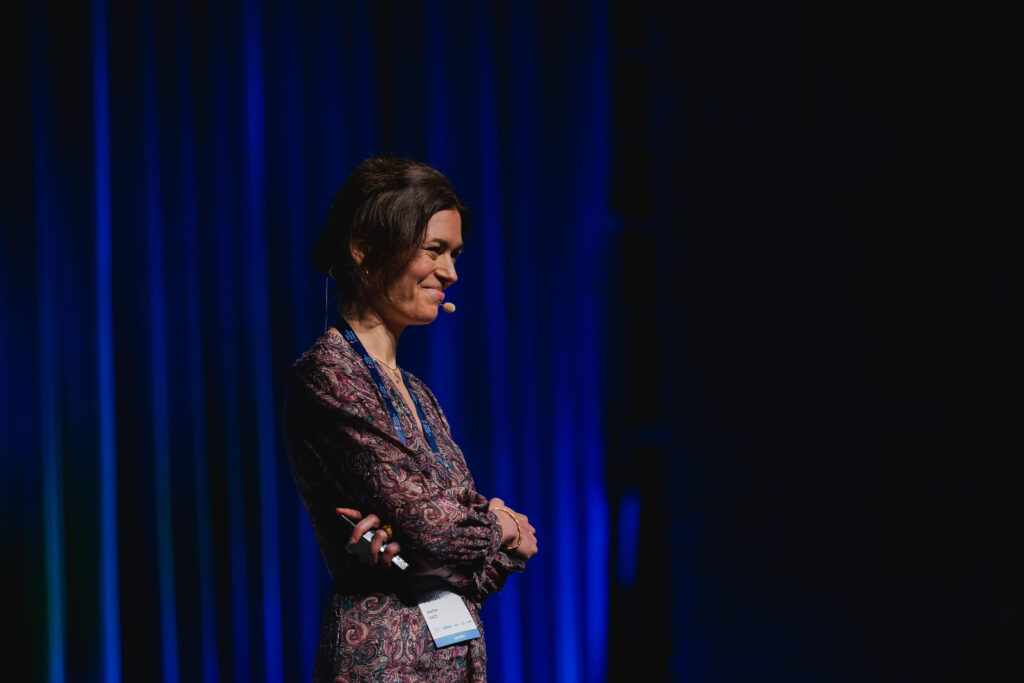
Trans voices and their stories
Three professionals — Maya Nováková from Barclays, Eva Krajčovič from Vodafone, and Alex Machala from Decathlon — shared their honest experiences of being trans in the workplace. Maya spoke about a challenge that many trans employees face when they begin their transition: the struggle to use their real name at work, even before their legal documents are changed.
“You want to be seen as your true self,” Maya said. “But many systems — email, Teams, work apps — still show your old name. Even in inclusive companies, the process to change this is missing.”
Maya reminded us that inclusion is not just about company values, but also about fixing the small things that hurt people daily. “When your preferred name is shown, it’s much easier to be seen in your correct gender role,” she said.
What holds us back — and what helps us grow
The closing keynote, given by Dr. Poornima Luthra, gave the audience a chance to step back and reflect. Her message was clear: diversity, equity, and inclusion (DEI) work is not easy — but it is essential.
Dr. Luthra explored why there’s still resistance to DEI in many workplaces. “It’s because DEI is often seen as a threat,” she said. “A threat to how things have always been done, to what people believe in, to their own opportunities.”
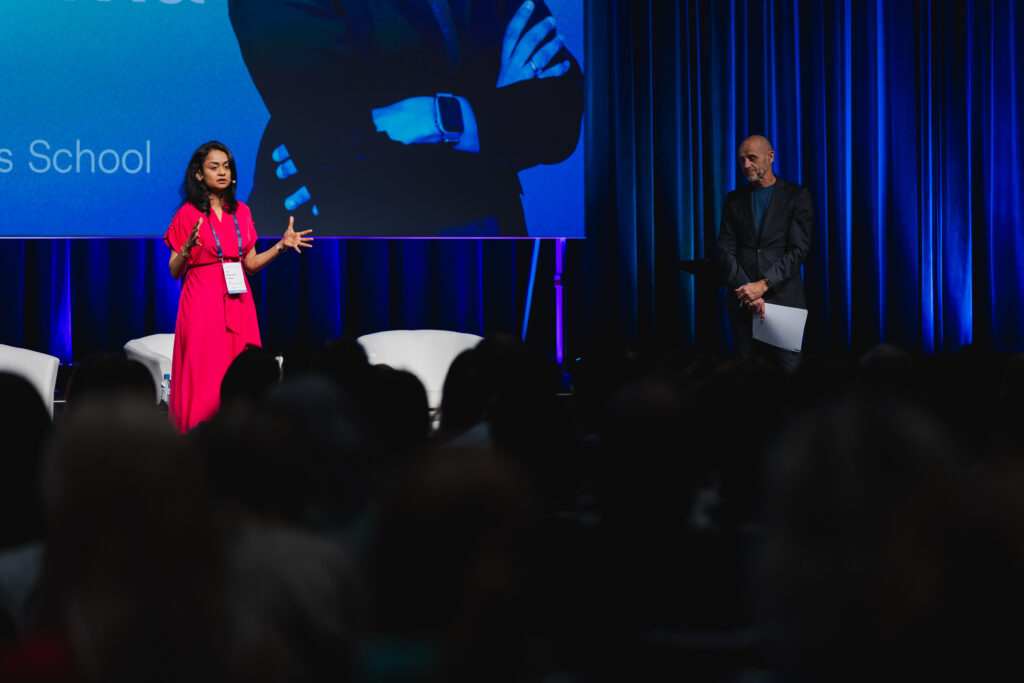
And when people feel threatened, she explained, they react emotionally. They might fight against change. Or they might freeze, say nothing, and stay silent out of fear. But fear is not just felt by people who are against inclusion — it’s also felt by those working for it. “Even allies feel fear — fear of saying the wrong thing, fear of not knowing enough, fear of change,” she said.
One of the most relatable parts of her talk was about the fear of getting it wrong. Many people avoid conversations about gender, race, or identity simply because they don’t want to offend anyone. “We walk on eggshells,” she said. “We’re afraid to ask questions. But learning only happens when we are curious — and when we make space for mistakes.”
What true allyship looks like
At first glance, it might seem like a small thing — a rainbow-colored shopping bag at IKEA. But as Susanna Romantsova, a diversity and inclusion (D&I) leader, explained during this year’s panel on performative allyship, the bag told a much deeper story. “I saw the rainbow bag and felt it was meaningful — but also difficult,” she said.
Susanna started working for IKEA in Warsaw in 2019 as the company’s first regional head of D&I. Her very first task? To prepare communications for the International Day Against Homophobia, Transphobia and Biphobia (IDAHOBIT). Not long after launching the campaign, a public case made headlines — a colleague posted a homophobic comment and was let go. What followed were court hearings, media attention, and personal threats.
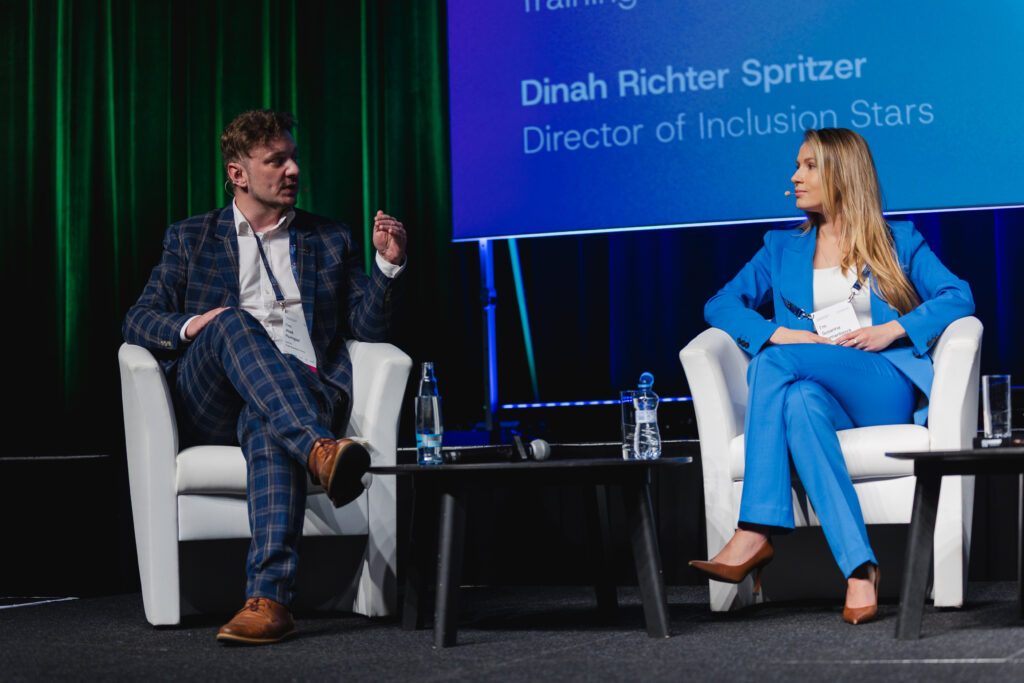
“For the next three years, I was between courtrooms,” she said. “But my company told me: We know you are here to bring change, and we are ready to support you.”
This support was more than just words. IKEA introduced inclusive benefits — like parental leave for same-sex couples, and yes, the rainbow Storstomma bag, with profits going to LGBTQ+ charities. But as Susanna pointed out, these achievements were not what mattered most to employees.
“When I left the company after three and a half years, we had improved the inclusion index by 10%. But the feedback that meant the most was this: What we appreciate most is how consistent and fearless you were.” Even though, she admitted honestly, she wasn’t fearless. She was often scared — scared of the political climate, scared of public backlash. But she continued. “Politicians come and go. Companies — and real values — remain.”
The distance between words and action
Dinah Richter Spritzer, journalist and DEI trainer, brought a journalist’s sharp eye to the topic of performative allyship — when companies say all the right things in public, but do something very different in private. “Corporations naturally want to show their best side online,” she said. “But the problem is the distance — the space between what they say and what they actually do.”
Dinah gave several examples. A company might say it supports mothers, but then quietly pass over a single mom for a promotion. Or it may claim to support LGBTQ+ inclusion, yet ignore harmful jokes or slurs made at a company dinner.
“You’ll hear: ‘Don’t be so sensitive,’” she said. “But we’ve seen here how these comments can lead to real harm — even suicide. Are they really inclusive, then?” Dinah emphasized that hypocrisy isn’t always malicious — sometimes it’s built into the system. “We all make mistakes. No one always lives up to their values. But what matters is how big that gap is — and whether leadership is willing to confront it.”
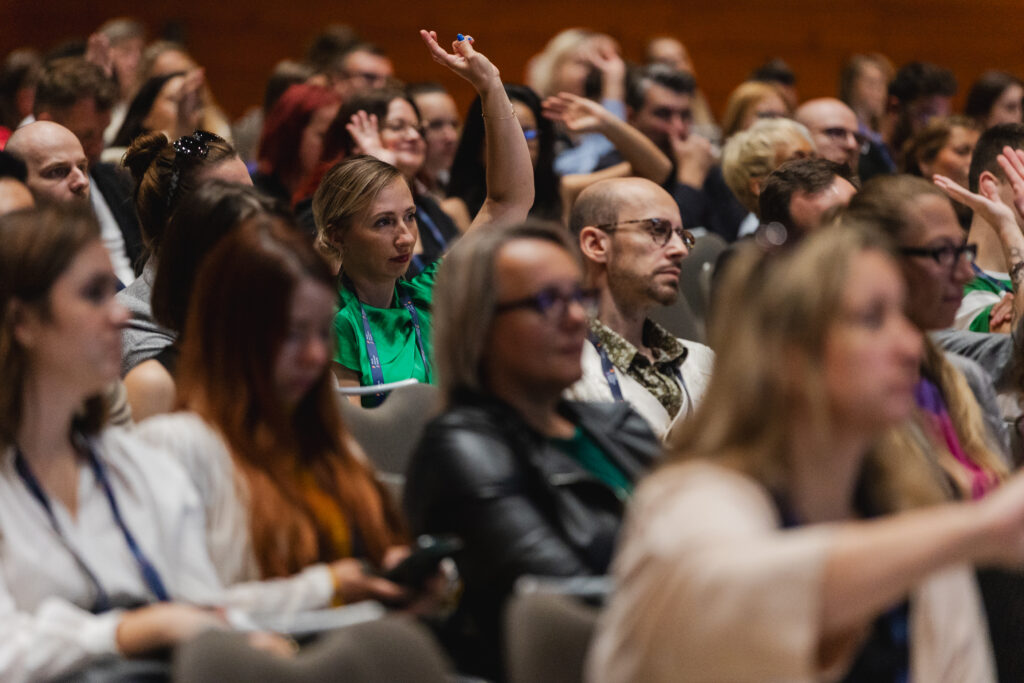
The LGBTQ+ Employer of 2025
The event ended with the announcement of the LGBTQ+ Friendly Employer 2025 Award, which recognises companies that not only support LGBTQ+ rights but also take real action to create equal and welcoming workplaces. This year, Vodafone and MSD were named the top LGBTQ+ Friendly Employers, standing out for their strong commitment and positive impact. See the full list of winners and learn more about what each one has done to deserve the award.
